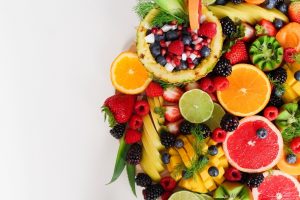Many scientists are looking at how food or nutritional supplements affect the mind as mental health concerns are rising. The brain is the most intricate and energy-intensive organ in the body and has specific nutritional requirements.
Although it only makes up 2% of the body’s bulk, it consumes 20% of its metabolic energy. To keep it going, a variety of vitamins and minerals are required. Even a tiny portion of the metabolic pathways in the brain requires a large number of critical nutrients.
It is now well known that some diets are especially beneficial for the brain. According to a recent study, following a “Mediterranean diet” low in red and processed meats and saturated fats and high in vegetables, fruit, legumes, and whole grains lowers the risk of:
- Strokes
- Cognitive dysfunction
- Depression
All of the essential amino acids the body needs, including several that it cannot produce, are found in animal proteins like roast chicken, ham, or fish:
- The folate found in Brussels sprouts is necessary for normal brain function.
- Tyrosine and tryptophan are required to produce dopamine, a neurotransmitter that regulates feelings of pleasure and reward.
- Cranberries are high in vitamin C, which is involved, among other things, in the conversion of dopamine into noradrenaline, another neurotransmitter, a deficiency of which seems to be associated with depression.
It can be challenging to separate the brain’s nutritional requirements from those of the rest of the body. Recommended Daily Allowances (RDAs) are not very helpful. During the Second World War, they were developed based on the nutrients required for the soldiers’ physical well-being. There are no such RDAs for the brain. At least not yet.
Nutritional science is understudied as compared to other disciplines. That is due in part to how challenging it is to succeed. Randomized Controlled Trials (RCTs), which are used to test medications, are challenging. For years, few people have wished to maintain an unconventional diet.
To establish links between specific meals or nutrients and diseases, observational studies are the foundation of most nutritional research. They cannot be utilized to conclusively establish a link between an illness and a specific dietary component that causes it. But when enough of these trials are combined, as with smoking and lung cancer, causal narratives start to take shape.
Scientific research now demonstrates a clear connection between a person’s diet and mental health. According to studies, B12 deficiency results in sadness, and poor memory and is linked to mania and psychosis.
- Neurodevelopmental issues are linked to low vitamin D levels, which are also linked to dementia and stroke risks.
- According to a recent RCT, high dosages of B6—100 mg daily as opposed to the RDA’s 1.3 mg—reduce anxiety.
- Of the five vitamins that Robert Przybelski of the University of Wisconsin searched for in a study of senior people attending a memory clinic, 40%, and 20%, respectively, were insufficient.
- Supplements are beneficial for kids with ADHD. Clinical psychologist Julia Rucklidge at the University of Canterbury in New Zealand has demonstrated that the same supplements benefit kids who have trouble controlling their emotions. Recently, the trial was repeated in America.
According to a significant RCT released in September 2022, taking a daily multivitamin may help those over 65’s cognition. Researchers monitored more than 2,000 participants, and they calculated that three years of supplementation resulted in a 60% reduction in cognitive decline.
A Polish-American biochemist named Casimir Funk first claimed that humans needed unidentified organic chemicals in minute amounts to sustain their health in 1912. This was the beginning of the narrative of nutritional supplements. This turned out to be true.
In 2018, 43% of Asians and 54% of North Americans both ingested dietary supplements. These are the most typical types:
- Multivitamins
- Omega-3 fatty acids
- Vitamin D
America, Western Europe, and Japan are the regions that spend the most on dietary supplements. According to one estimate, the global market will be worth $152 billion in 2021, and by 2030, 9% annual growth is predicted.
So why bother with a complicated and maybe pricey diet when you can just pop a few vitamins?
Since the little in-depth study has been done on the advantages or hazards of supplements, and the business is sometimes subject to lax or nonexistent regulation. The supplement market is like the “Wild West,” according to University College Cork’s Ted Dinan, a professor of psychiatry. Therefore, it’s rare to know what you’re getting.
In contrast to rigorously controlled pharmaceuticals, dietary supplements may include more or less of what they advertise. During pregnancy, too much vitamin A might be dangerous. Taking beta-carotene and vitamin E has several health hazards. High levels of one vitamin can hamper the absorption of other nutrients.
Trials have also demonstrated that the types of bacteria found in yogurt, specifically fermented foods, can lower anxiety. The discovery that a single bacterial strain can change a person’s ability to handle stress astounds Dr. Dinan the most. Two species of Bifidobacterium and one species of Lactobacillus have each been shown in studies to lessen stress.
The challenge in creating this new area of study is economics. Vitamins, minerals, and microorganisms cannot be patented; unlike pharmaceuticals, therefore, pharmaceutical firms run the significant danger of having their innovations stolen.
The field of nutritional psychiatry is relatively young. The next step is figuring out how micronutrients affect the brain when it becomes more apparent which ones do so. Yet another emerging field of study might assist that.



